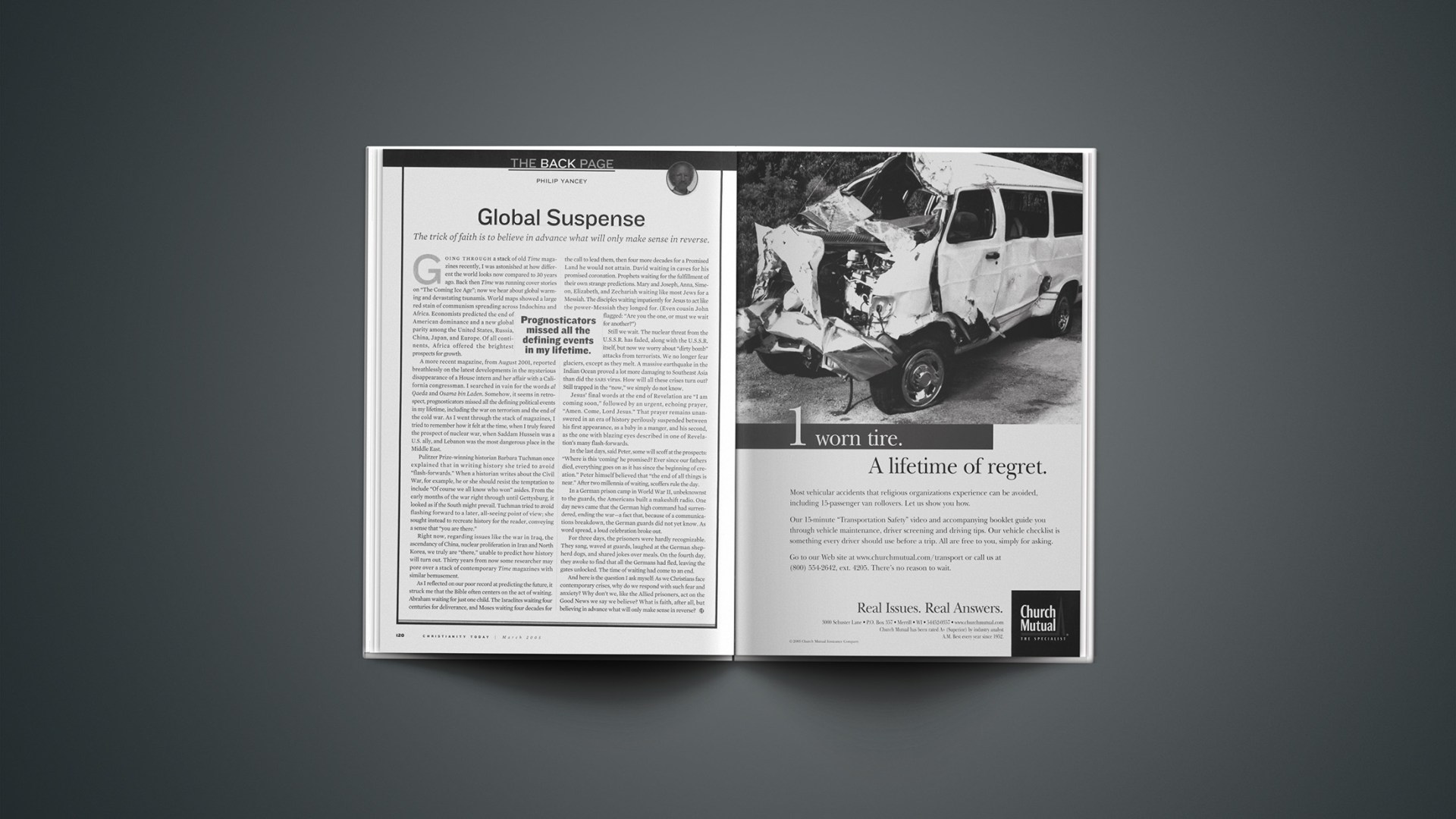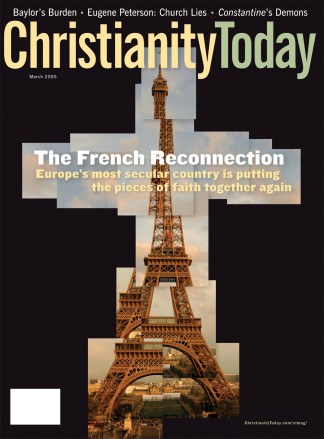Going through a stack of old Time magazines recently, I was astonished at how different the world looks now compared to 30 years ago. Back then Time was running cover stories on "The Coming Ice Age"; now we hear about global warming and devastating tsunamis. World maps showed a large red stain of communism spreading across Indochina and Africa. Economists predicted the end of American dominance and a new global parity among the United States, Russia, China, Japan, and Europe. Of all continents, Africa offered the brightest prospects for growth.
A more recent magazine, from August 2001, reported breathlessly on the latest developments in the mysterious disappearance of a House intern and her affair with a California congressman. I searched in vain for the words al Qaeda and Osama bin Laden. Somehow, it seems in retrospect, prognosticators missed all the defining political events in my lifetime, including the war on terrorism and the end of the cold war. As I went through the stack of magazines, I tried to remember how it felt at the time, when I truly feared the prospect of nuclear war, when Saddam Hussein was a U.S. ally, and Lebanon was the most dangerous place in the Middle East.
Pulitzer Prize-winning historian Barbara Tuchman once explained that in writing history she tried to avoid "flash-forwards." When a historian writes about the Civil War, for example, he or she should resist the temptation to include "Of course we all know who won" asides. From the early months of the war right through until Gettysburg, it looked as if the South might prevail. Tuchman tried to avoid flashing forward to a later, all-seeing point of view; she sought instead to recreate history for the reader, conveying a sense that "you are there."
Right now, regarding issues like the war in Iraq, the ascendancy of China, nuclear proliferation in Iran and North Korea, we truly are "there," unable to predict how history will turn out. Thirty years from now some researcher may pore over a stack of contemporary Time magazines with similar bemusement.
As I reflected on our poor record at predicting the future, it struck me that the Bible often centers on the act of waiting. Abraham waiting for just one child. The Israelites waiting four centuries for deliverance, and Moses waiting four decades for the call to lead them, then four more decades for a Promised Land he would not attain. David waiting in caves for his promised coronation. Prophets waiting for the fulfillment of their own strange predictions. Mary and Joseph, Anna, Simeon, Elizabeth, and Zechariah waiting like most Jews for a Messiah. The disciples waiting impatiently for Jesus to act like the power-Messiah they longed for. (Even cousin John flagged: "Are you the one, or must we wait for another?")
Still we wait. The nuclear threat from the U.S.S.R. has faded, along with the U.S.S.R. itself, but now we worry about "dirty bomb" attacks from terrorists. We no longer fear glaciers, except as they melt. A massive earthquake in the Indian Ocean proved a lot more damaging to Southeast Asia than did the SARS virus. How will all these crises turn out? Still trapped in the "now," we simply do not know.
Jesus' final words at the end of Revelation are "I am coming soon," followed by an urgent, echoing prayer, "Amen. Come, Lord Jesus." That prayer remains unanswered in an era of history perilously suspended between his first appearance, as a baby in a manger, and his second, as the one with blazing eyes described in one of Revelation's many flash-forwards.
In the last days, said Peter, some will scoff at the prospects: "Where is this 'coming' he promised? Ever since our fathers died, everything goes on as it has since the beginning of creation." Peter himself believed that "the end of all things is near." After two millennia of waiting, scoffers rule the day.
In a German prison camp in World War II, unbeknownst to the guards, the Americans built a makeshift radio. One day news came that the German high command had surrendered, ending the war—a fact that, because of a communications breakdown, the German guards did not yet know. As word spread, a loud celebration broke out.
For three days, the prisoners were hardly recognizable. They sang, waved at guards, laughed at the German shepherd dogs, and shared jokes over meals. On the fourth day, they awoke to find that all the Germans had fled, leaving the gates unlocked. The time of waiting had come to an end.
And here is the question I ask myself: As we Christians face contemporary crises, why do we respond with such fear and anxiety? Why don't we, like the Allied prisoners, act on the Good News we say we believe? What is faith, after all, but believing in advance what will only make sense in reverse?
Copyright © 2005 Christianity Today. Click for reprint information.










